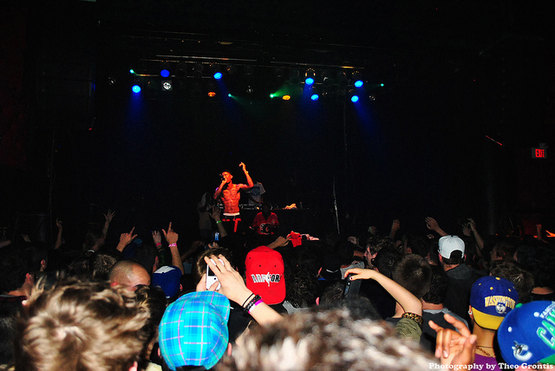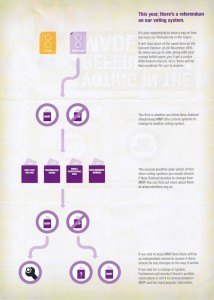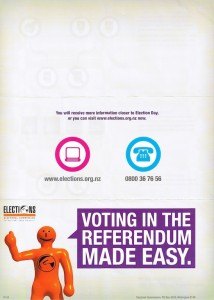 HRC pressures King & Spalding to drop case defending the Defense of Marriage Act
HRC pressures King & Spalding to drop case defending the Defense of Marriage Act
King & Spalding, the law firm hired by House Republican leaders to defend the Defense of Marriage Act (DOMA) dropped the case. The U.S. Defense of Marriage Act aims to “define and protect the institution of marriage”. It says that no state etc. is required to recognize a relationship that is considered a same-sex marriage in another state.
It’s concerning when lawyers bow to pressure to not take a case on (or to drop one, in this case) because of public opinion. A similar argument could apply to people accused of rape, murder etc.—that lawyers are horrible people for representing them.
The Human Rights Campaign pressured K&S to drop the case. The cost is capped at $500k and a lot of Americans would rather the focus be on other issues—“when read statements for and against defending DOMA in court, 54 percent of voters oppose the House Republicans’ intervention, while only 32 percent support it.…”.
K&S has a high rating on HRC’s Corporate Equality Index, meaning they hire without discrimination. Just because they were going to defend this viewpoint doesn’t mean they supported it.
The pressure should be targeted at the House Republican leaders and not at the people doing their jobs.
Earthquake moon man silenced
Mr Ring said he also feared he would be prosecuted for inciting a riot following his quake prediction.
“I’ve been virtually told by [ACC minister] Dr Nick Smith and Sir Peter Gluckman [the prime minister’s scientific advisor] that I’m not qualified to put statements out about earthquakes. They will have me legally if I do that.
“Until they reverse that, I’m completely bound to silence. I don’t want to go to jail.
“They said it was like calling out fire in a crowded theatre and that’s against the law — it’s called the riot act, and inciting riot.” –Stuff.co.nz
The Crimes Act defines a riot as “…a group of 6 or more persons who, acting together, are using violence against persons or property…”. It also seems like the Riot Act (or at least the reading of the Riot Act?) was repealed.
To my unqualified eye this seems like a questionable interpretation of the law and a questionable use of status to silence someone.
Website blaming earthquake on gays taken down by host
A website was put up shortly after the Christchurch earthquake at christchurchquake.net (now suspended), blaming the quake on the gay community, and the people supporting it. It was widely covered, including by the Sydney Morning Herald. Bluehost received many complaints about it (in the thousands, according to a source) and said they’d only act if they received a court order to do so (I asked and they said they would accept a New Zealand one), but eventually pulled it down because of a copyright complaint.
People or corporations using copyright complaints to get content taken down that they don’t agree with or would rather not have up isn’t uncommon. In this case a whole site was taken down because of one image.
The complaints used Bluehost’s terms of service, section 9.14 as the reason:
Obscene, Defamatory, Abusive or Threatening Language. Use of the Services to store, post, transmit, display or otherwise make available obscene, defamatory, harassing, abusive or threatening language is prohibited.
Several people have pointed out that web hosts shouldn’t have to decide whether something is legal or not. Bluehost refused to decide and asked for a court order. This reasoning would have been better received by complainers if Bluehost didn’t include clauses in their terms of service that say they will take down a site if it contains x. However I am sure Bluehost isn’t the only host that does this.
The site reportedly suffered a DDoS attack as well, which affected other customers on the same server.
This is a change of tune from what I said immediately after I heard about the website, but I support this decision by Bluehost. The site was in bad taste, however should still be protected as free speech until potentially being deemed illegal by a court. If this had been a pro-gay website and anti-gay people had pressured the host to take it down then succeeded because of a copyright complaint, these same people against this site would be angered.
Bluehost let themselves down by taking down the website because of one copyrighted image. I am curious as to whether the customer behind the website was given a chance to respond to the copyright complaint. They received lots of complaints and bad press about this. This would’ve been a perfect topic for the CEO’s blog on why they weren’t going to take action without a court order.
However this event brings up an interesting idea: that the Internet has unwritten rules and if something or someone goes against those rules, people come together over forums or social media etc. to try fight it. This has happened before with child and animal abuse (the perpetrators tracked down), fights for democracy (help with the spread of information to citizens) and corporations with questionable business practices (unfortunate documents released) and because of the nature of the Internet will continue to happen.
Image credit: Christchurchquake/DomainTools


 Macsyna King cooperated with the police and was a prosecution witness, she hasn’t just decided to speak now. She isn’t profiting from the book either, Ian says: “Apart from sharing a Domino’s pizza during lunch, Macsyna has never received anything nor will she.” Ian will earn money for the book, but points out that researching and publishing a book takes time and money and that
Macsyna King cooperated with the police and was a prosecution witness, she hasn’t just decided to speak now. She isn’t profiting from the book either, Ian says: “Apart from sharing a Domino’s pizza during lunch, Macsyna has never received anything nor will she.” Ian will earn money for the book, but points out that researching and publishing a book takes time and money and that 

 HRC pressures King & Spalding to drop case defending the
HRC pressures King & Spalding to drop case defending the